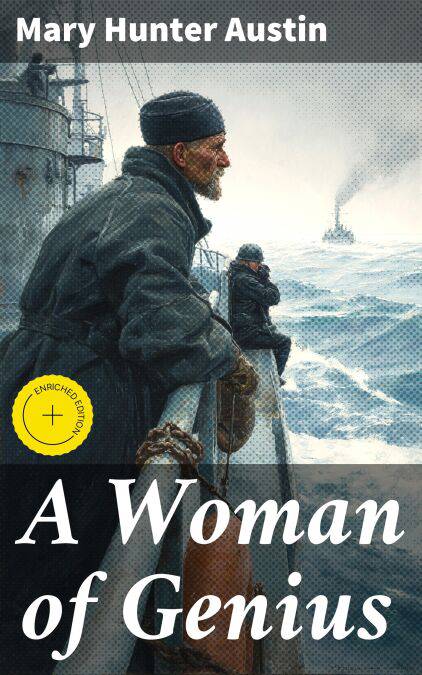
Bedankt voor het vertrouwen het afgelopen jaar! Om jou te bedanken bieden we GRATIS verzending (in België) aan op alles gedurende de hele maand januari.
- Afhalen na 1 uur in een winkel met voorraad
- In januari gratis thuislevering in België
- Ruim aanbod met 7 miljoen producten
Bedankt voor het vertrouwen het afgelopen jaar! Om jou te bedanken bieden we GRATIS verzending (in België) aan op alles gedurende de hele maand januari.
- Afhalen na 1 uur in een winkel met voorraad
- In januari gratis thuislevering in België
- Ruim aanbod met 7 miljoen producten
Zoeken
A Woman of Genius E-BOOK
Enriched edition. Exploring Feminist Artistry and Autonomy in Early 20th Century California
Mary Hunter Austin
E-book | Engels
€ 0,49
Uitvoering
Omschrijving
In her evocative novel "A Woman of Genius," Mary Hunter Austin explores the intricate tapestry of creativity, gender, and societal expectations through the lens of her compelling protagonist, a struggling artist in early 20th-century America. Austin employs a rich, lyrical prose style that captures both the beauty and the constraints of her character's world, immersing readers in the psychological and emotional depths of her journey. Set against the backdrop of a rapidly modernizing society, the narrative delves into the tensions between artistic ambition and traditional gender roles, revealing the profound struggles faced by women seeking autonomy in a patriarchal landscape. Mary Hunter Austin, a pioneering figure in American literature known for her deep connection to nature and the American Southwest, brings her own experiences as a woman writer to this work. With a life marked by challenges that shaped her worldview, including poverty and a commitment to social issues, Austin's insights are woven throughout the novel. She harnesses her background to enrich the character of the artist, giving voice to the aspirations and frustrations of women creators during her time. This novel is a striking exploration of female empowerment and artistic self-definition, making it an essential read for anyone interested in the intersection of gender and creativity in literature. Austin's poignant examination of her protagonist's struggles resonates with contemporary discussions on women's rights and artistic freedom, inviting readers to reflect on the enduring challenge of overcoming societal barriers.
In this enriched edition, we have carefully created added value for your reading experience:
- A succinct Introduction situates the work's timeless appeal and themes.
- The Synopsis outlines the central plot, highlighting key developments without spoiling critical twists.
- A detailed Historical Context immerses you in the era's events and influences that shaped the writing.
- A thorough Analysis dissects symbols, motifs, and character arcs to unearth underlying meanings.
- Reflection questions prompt you to engage personally with the work's messages, connecting them to modern life.
- Hand‐picked Memorable Quotes shine a spotlight on moments of literary brilliance.
- Interactive footnotes clarify unusual references, historical allusions, and archaic phrases for an effortless, more informed read.
In this enriched edition, we have carefully created added value for your reading experience:
- A succinct Introduction situates the work's timeless appeal and themes.
- The Synopsis outlines the central plot, highlighting key developments without spoiling critical twists.
- A detailed Historical Context immerses you in the era's events and influences that shaped the writing.
- A thorough Analysis dissects symbols, motifs, and character arcs to unearth underlying meanings.
- Reflection questions prompt you to engage personally with the work's messages, connecting them to modern life.
- Hand‐picked Memorable Quotes shine a spotlight on moments of literary brilliance.
- Interactive footnotes clarify unusual references, historical allusions, and archaic phrases for an effortless, more informed read.
Specificaties
Betrokkenen
- Auteur(s):
- Uitgeverij:
Inhoud
- Aantal bladzijden:
- 330
- Taal:
- Engels
Eigenschappen
- Productcode (EAN):
- 4057664562777
- Verschijningsdatum:
- 3/12/2019
- Uitvoering:
- E-book
- Beveiligd met:
- Digital watermarking
- Formaat:
- ePub

Alleen bij Standaard Boekhandel
Beoordelingen
We publiceren alleen reviews die voldoen aan de voorwaarden voor reviews. Bekijk onze voorwaarden voor reviews.









